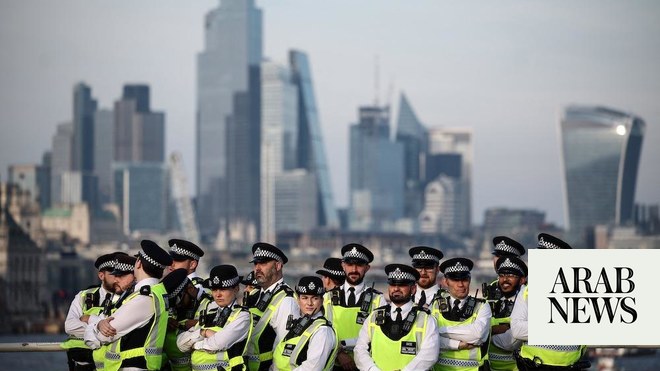
Strike a bid to ‘reclaim lost relevance,’ says ruling party official
NEW DELHI: The Kashmir valley shut down on Saturday in protest at new laws that allow outsiders to buy land in the disputed region for the first time.
Non-Kashmiris can use the purchased land for educational, industrial or residential purposes, but not for agriculture, following a decision on Tuesday from the Indian government.
The law comes more than a year after the Bharatiya Janata Party (BJP) government revoked the region’s special status which, among other things, gave Kashmiris limited autonomy and protected certain rights.
“Whether you accept it or not, when you come across the element of unrest, chaos, you have to agree that something is wrong somewhere,” the leader of the pro-freedom All Party Hurriyat Conference (APHC), Prof. Abdul Ghani Bhat, told Arab News.
Earlier this week the APHC, a coalition of political, religious and civil society groups, issued a call to observe a “complete strike” against the “policy of permanent demographic change” in the valley.
It accused New Delhi of trying to “snatch our land, destroy our identity, and turn us into a minority in our own land.”
“Rather than pursuing a peaceful resolution of the Jammu and Kashmir issue, involving millions of humans living in the uncertainty of a conflict as per their will and to ensure peace in the region, all attempts are being made to undermine that possibility by the government of India and instead, a policy of permanent demographic change is aggressively being pushed,” the APHC added.
Saturday"s protest is the first time such a demonstration has taken place in the valley since the region lost its special status on Aug. 5, and the new land laws have increased anxiety among residents.
“The situation is very tense in the valley,” Aijaz Ahmad, a Srinagar-based businessman, told Arab News. “People are very angry after the new changes in the land law. People think that the central government has declared war on Kashmiris.”
Srinagar-based political analyst and editor Fahad Shah said the shutdown was unsurprising because the region had been in a transition period since last summer.
“Politicians and people were going to reassemble against the government with time,” he told Arab News. “The situation in Kashmir is not better, and it is escalating and could burst anytime.”
There were limited options for residents to express their growing anger because of a crackdown and a greater security presence, he said.
“But there is a fear that the future in Kashmir is bleak, and it will not be peaceful just because the government wants everyone to believe so.”
Kashmir was divided into two territories after losing its special status - Ladakh, and Jammu and Kashmir - and all democratic and political activities were suspended for several months.
Hundreds of activists and pro-freedom leaders were arrested and imprisoned in the run-up to the August decision, and some remain behind bars or are under house arrest.
The region is divided between India and Pakistan, with two wars being fought over it, and hostility festering for decades due to the countries’ rival claims.
Bhat said it was time to move on.
“We support dialogue, a purposeful substantive dialogue involving India and Pakistan with a view to ensuring a brighter tomorrow and a better region,” he said. “If you go against this principle, where do you take us to?”
Local authorities were unavailable for comment when contacted by Arab News on Saturday, but the BJP deemed Saturday"s shutdown an attempt by separatists to “reclaim their lost relevance.”
“Be it the political parties or any other group, they have lost people’s support because of their corruption, they are not liked by people,” Kumar Chrungoo, a senior BJP leader based in Jammu, told Arab News. “The call for the valley shutdown is an attempt to test their relevance.”
He also said that the valley’s residents wanted a new and young leadership.
“The real voice of the people are those leaders who have been elected in local bodies. The old politics cannot go on in Kashmir now,” he added.
One expert called for the Supreme Court to take note of the rapid changes being introduced in Kashmir by the central government.
Political analyst and former air vice marshal Kapil Kak, who is Kashmiri, is one of the petitioners challenging the August decision.
“The abrogation of Article 370 is illegal, undemocratic and unconstitutional," Kak told Arab News, asking if the court had considered how a delayed ruling on the issue could affect the situation.
“Kashmiris have ceased to get angry,” he added. “Anger also has a limit. When you reach a certain level of alienation and anger, you get numb. This is the plight of Kashmiris … I am looking at it not just as a Kashmiri but as a citizen of the world, how justice has to prevail in any situation. We find that, unfortunately, Kashmiris do not receive justice.”












